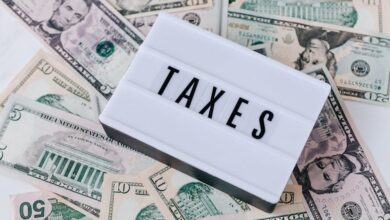Mastering Tax Strategies: A Comprehensive Guide to Deductions, Credits, and Policy Impacts for Individuals and Businesses

In an ever-evolving economic landscape, understanding the intricacies of tax policy is crucial for both individuals and businesses seeking to optimize their financial strategies. With frequent changes in legislation and the introduction of new tax incentives, maximizing deductions and credits has never been more important. This article delves into various facets of tax management, exploring how to unlock significant savings through effective deduction strategies and the role of tax-advantaged accounts in retirement planning. Additionally, we will discuss the impact of recent tax policy changes on economic growth, the importance of strategic investments in reducing taxable income, and the complexities of navigating international tax laws in a globalized economy. As the rise of digital currencies reshapes tax reporting norms, we will also provide actionable tips for small business owners to minimize tax liabilities. Join us as we unpack these critical topics and equip you with the knowledge to future-proof your finances in a changing world.
- 1. **Unlocking Savings: Maximizing Tax Deductions and Credits for Individuals and Businesses**
- 2. **Navigating Changes: Understanding the Impact of Tax Policy on Economic Growth and Personal Finances**
1. **Unlocking Savings: Maximizing Tax Deductions and Credits for Individuals and Businesses**
Maximizing tax deductions and credits is essential for both individuals and businesses looking to reduce their overall tax liabilities. Understanding the difference between deductions and credits is crucial: deductions lower taxable income, while credits directly reduce the amount of tax owed.
For individuals, common deductions include mortgage interest, property taxes, and student loan interest, which can significantly reduce taxable income. Tax credits, such as the Earned Income Tax Credit (EITC) or the Child Tax Credit, provide direct savings on the tax bill and can sometimes lead to refunds even if no taxes are owed. It’s vital for individuals to keep thorough records of eligible expenses and to stay informed about available credits that may change annually.
Businesses, on the other hand, have a wider array of deductions available, including operating expenses, employee salaries, and benefits, as well as depreciation on assets. The Tax Cuts and Jobs Act introduced changes that can benefit corporations, such as a reduced corporate tax rate and enhanced deductions for certain investments. Small businesses can also take advantage of the Qualified Business Income (QBI) deduction, which allows eligible business owners to deduct up to 20% of their qualified business income.
Both individuals and businesses should consult tax professionals or utilize software tools to identify all possible deductions and credits applicable to their unique situations. By proactively planning throughout the year and maintaining organized financial records, taxpayers can maximize their tax benefits, ultimately unlocking significant savings.
Maximizing tax deductions and credits requires a strategic approach that takes into account both personal and business financial situations. Individuals can benefit from understanding available tax credits, such as the Earned Income Tax Credit (EITC) and the Child Tax Credit, which directly reduce tax liability. Additionally, deductions for mortgage interest, student loan interest, and charitable contributions can significantly lower taxable income. It’s crucial to keep thorough records and receipts to substantiate claims and make the most of these opportunities.
For businesses, tax policy changes can have profound implications. Recent reforms, such as alterations to corporate tax rates and the introduction of new deductions, can impact profitability and investment strategies. Businesses should stay informed about these changes to adjust their financial plans accordingly.
Investments can also play a key role in reducing taxable income. Contributions to tax-deferred accounts like 401(k)s and IRAs not only prepare individuals for retirement but also lower taxable income in the current year. Furthermore, capital gains from investments held for over a year are generally taxed at a lower rate, incentivizing long-term investment strategies.
Navigating international tax laws is essential for individuals and businesses with global investments. Understanding treaties and regulations can help avoid double taxation and optimize tax responsibilities.
Digital currencies are becoming increasingly relevant in tax discussions. As more individuals and businesses engage in cryptocurrency transactions, they need to be aware of the tax implications, including reporting requirements for gains and losses, which can add complexity to tax filings.
Small business owners also have unique opportunities to minimize tax liabilities. Utilizing deductions for business expenses, including home office deductions and travel expenses, can provide significant savings. Additionally, taking advantage of tax credits specific to small businesses, such as the Small Business Health Care Tax Credit, can further reduce tax burdens.
Looking to the future, tax policy will likely evolve in response to economic shifts, technological advancements, and societal changes. Staying informed and adaptable will be crucial for both individuals and businesses aiming to navigate this complex landscape effectively.
2. **Navigating Changes: Understanding the Impact of Tax Policy on Economic Growth and Personal Finances**
Tax policy plays a pivotal role in shaping both economic growth and personal finances. Changes in tax laws can influence consumer behavior, business investment decisions, and overall economic stability. For individuals, modifications to tax rates, deductions, and credits directly affect disposable income and financial planning. A reduction in personal income tax rates, for instance, can boost consumer spending, which in turn stimulates economic growth.
On the business side, tax incentives or disincentives can significantly impact investment strategies. For example, tax credits for research and development can encourage innovation and expansion, while increased corporate tax rates may deter investment and slow growth. The balance between taxation and incentives is crucial; excessive taxation can lead to capital flight, where businesses move operations to more tax-friendly jurisdictions, ultimately reducing domestic investment and job creation.
Additionally, tax policy changes often reflect broader economic goals, such as promoting equity or addressing income inequality. For instance, policies that increase taxes on higher income brackets and provide credits for lower-income households can help redistribute wealth and foster social stability. However, these changes can also lead to debates about fairness and efficiency, as individuals and businesses assess the implications on their financial situations.
In navigating these changes, it is essential for taxpayers to stay informed and adapt their financial strategies accordingly. Understanding how specific tax reforms affect personal finances, investment opportunities, and business operations can empower individuals and organizations to make informed decisions and optimize their tax positions in a constantly evolving landscape. As policymakers continue to reassess tax structures in response to economic conditions, the ability to anticipate and react to these shifts will be crucial for maintaining financial health and promoting sustainable growth.
In conclusion, effectively navigating the complex landscape of taxes is crucial for both individuals and businesses aiming to optimize their financial health. By maximizing deductions and credits, understanding the implications of tax policy changes, and leveraging investment strategies, taxpayers can significantly reduce their taxable income and enhance their savings. Additionally, tax-advantaged accounts play a vital role in retirement planning, allowing individuals to build wealth while minimizing their tax burden.
As globalization continues to influence financial strategies, staying informed about international tax laws is essential for those with global investments. The rise of digital currencies also presents unique challenges regarding tax reporting, underscoring the need for taxpayers to adapt to evolving regulations. Finally, small business owners must implement proactive strategies to mitigate tax liabilities, ensuring their operations remain sustainable in a competitive market.
Looking ahead, the future of tax policy will likely evolve in response to economic pressures and societal needs. By staying educated and adaptable, taxpayers can not only navigate these changes effectively but also position themselves to thrive in an ever-changing economic landscape. Ultimately, a proactive approach to tax planning can unlock significant savings and pave the way for long-term financial success.





